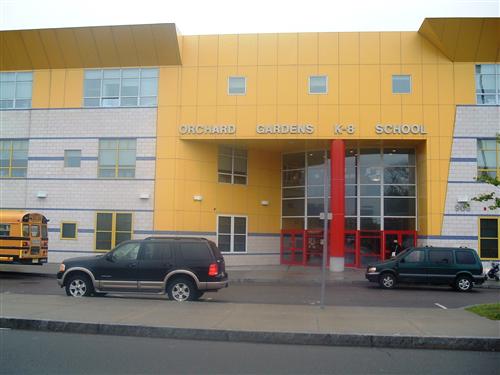Trauma-Informed Practices in Classrooms: Establishing Measures in #90days
What do children bring with them to school? Their backpack, a jacket, maybe a folder and some paper, a pencil…At first, this sounds like a pretty simple question and answer. After working closely with Dr. Neena McConnico, the director of Child Witness to Violence, and Dean Stefani Harvey from Orchard Gardens Pilot School to implement trauma-informed practices into schools, VISTA Meghna Nandi has learned that the situation is actually much more complex. A lot of what children bring to school we often cannot see with our own eyes. Students carry their experiences with them – what they see at home, what they see in their community, what happens when they are not at school. These experiences color children’s perspective of the world and shape the way they interact with their environment – which inevitably affects their ability to learn. Trauma-informed practices in classrooms acknowledge that learning is not separate from a child’s outside experiences and that for all children to feel safe, supported, and ready to learn at school, we need to be aware of and respond to the ways in which traumatic events affect students. In the following post, Meghna reflects on the foundations of Vital Village’s collaborations around trauma-informed practices in schools and describes how our multi-disciplinary team has developed and used measurement tools since attending the Leadership Summit.

Community-Informed Design
Over three years ago, Vital Village and Dr. Neena McConnico formed a partnership to begin thinking about how they could support teachers to create a school environment that better supports students who have been exposed to trauma. They embarked on this ambitious project using a series of focus groups and discussions with teachers and administrators from schools in the Dudley Square and Codman Square neighborhoods so that teachers themselves could voice their own needs, desires and concerns around trauma exposure in their students. Early and essential champions of these partnerships were principals: Genteen Lacet Jean-Michel, principal of Lee Academy at the time, and Andrew Bott, principal of Orchard Gardens Pilot School at the time. These focus groups and discussions ultimately informed the development of trainings on trauma-informed practices for teachers. Last year, with the help of Vital Village Emerging Leader, Audrey Jackson, who was a graduate student and teacher at a trauma-sensitive school in Boston, they incorporated the B.R.E.A.K Toolbox, a set of hands-on materials that can help teachers support students exposed to trauma. After the formation of these materials, Vital Village, Child Witness to Violence Project and Orchard Gardens Pilot School entered a first “Plan-Do-Study-Act” (PDSA) cycle to pilot the trauma-informed curriculum in a few elementary classrooms at Orchard Gardens last year. Teachers and students responded positively to the pilot. Although optimistic after this first pilot project, Dr. McConnico understood that in order to fully understand the impact of the trauma-informed trainings, her team would need to consider more formal data collection.

Dr. Neena McConnico, Director of Child Witness to Violence Project, Photo by Ann Wang
Beginnings at the Leadership Summit
With these thoughts in mind, Dr. McConnico began working on expanding trauma-informed practices into more classrooms at Orchard Garden by collaborating with Dean of Students Stefani Harvey and Vital Village Network team members, Dr. Renée Boynton-Jarrett and myself. The team convened at the Leadership Summit, which Dr. McConnico felt would help us think more systematically about evaluation and measurement. “We know that we’re making progress and we know that there’s been improvement happening, but we want to be able to show that,” Dr. McConnico reflected upon leaving the summit, ready to jump headfirst into this next project.
Establishing Measures
Over the course of this first 90-Day Challenge, our team worked together to identify important outcomes and methods to measure those outcomes. Through various discussions, we identified important outcomes related to student behavior, teacher perspectives, and classroom environment. We worked with Dean Harvey to incorporate measures into existing school systems. Teachers’ perspectives are just as important to adaptations to the intervention as they were to its initial design. To follow classroom environment, we are using a standardized observational measure to assess classroom climate. The primary team traveled to Dallas for a training to become certified and reliable classroom observers. Having all three of us attend the training was really helpful for understanding the tool and its utility for our project. Dean Harvey appreciated that the tool provided all of us with the “same language and consistency” in discussing students’ behavior and “standardized things in a way that anyone can understand.”

Dean Stefani Harvey, Orchard Gardens K-8 Pilot School, Photo by Ann Wang
Coming Soon: The Second PDSA Cycle
Over the months of March and April, we will finally conduct the trauma-informed trainings with early elementary teachers at Orchard Gardens. We are excited to begin our second “Plan-Do-Study-Act” (PDSA) cycle and use our established measures to continue improving the quality of the trainings as we move forward.

